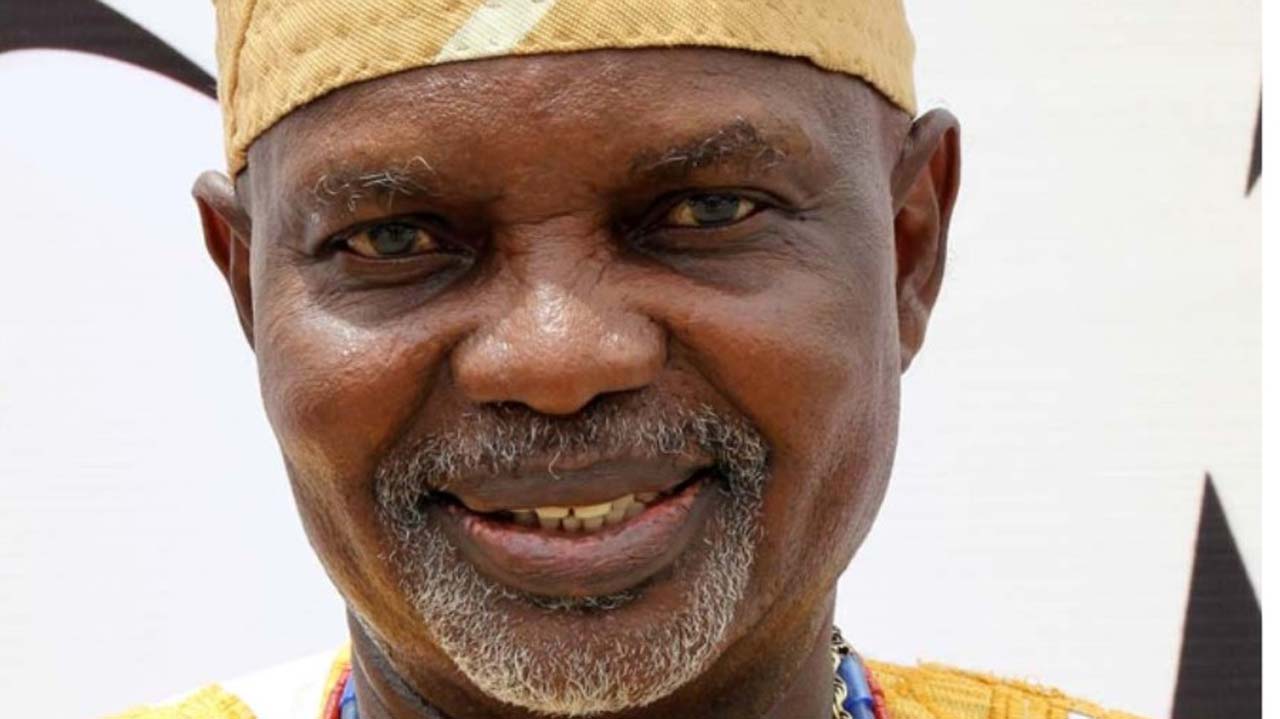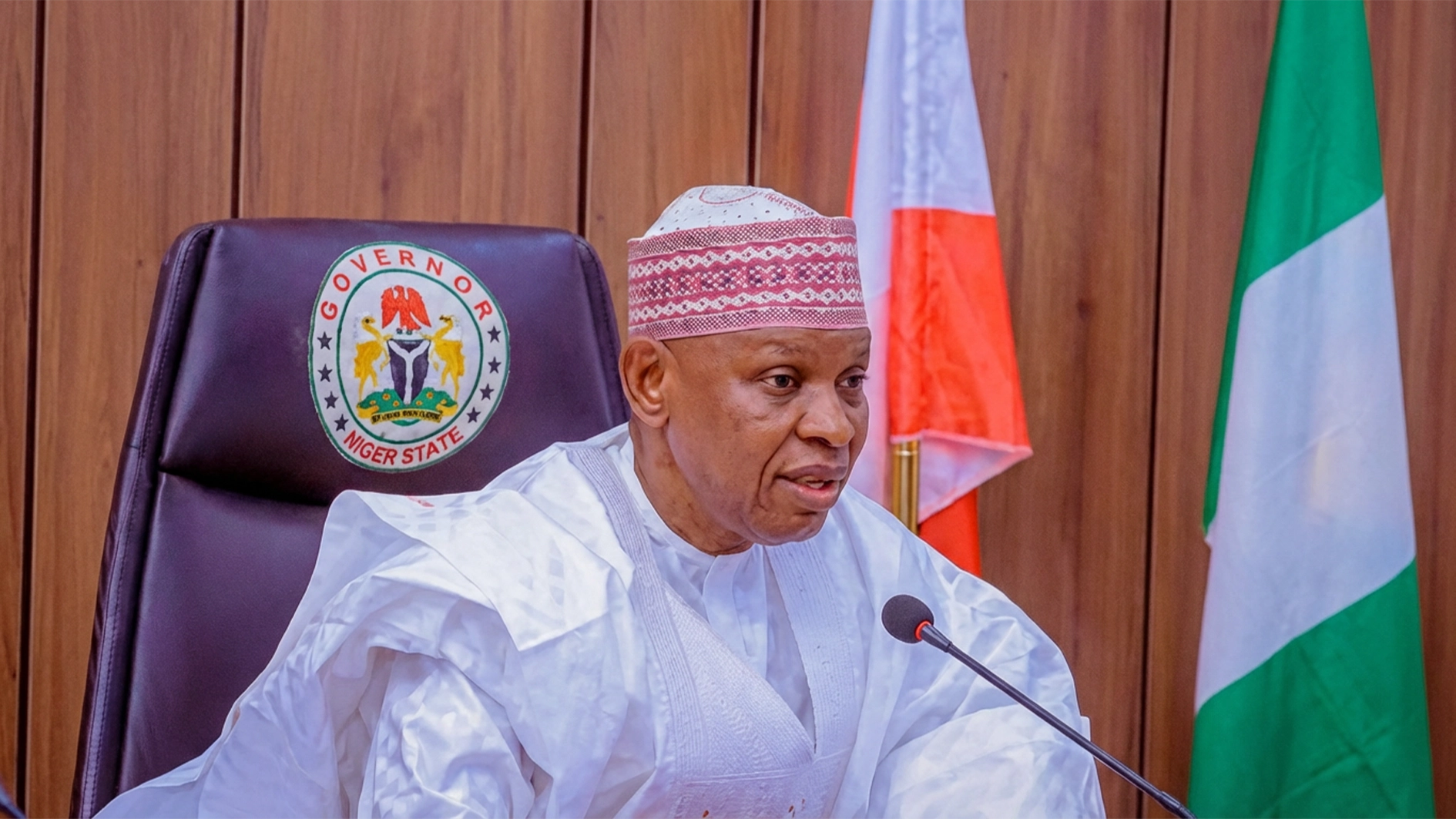
Oloye Olalekan Alabi, is a senior traditional chief, Agba Akin Olubadan of Ibadanland; a member of the Ibadan North Local Government Traditional Council, Oyo State. He is also first Culture Ambassador of the National Museum and Monument, Ile-Ife, Osun State. The veteran broadcaster has a unique profile of servicing as Press Secretary to four governments (one civilian and three military administrations) of the old Oyo State from February 1983 to March 1989. Thereafter, in August 1989, he was appointed pioneer Public Affairs Manager, Oodu’a Investment Company Limited and served the coglomerate until March 2007 when he voluntarily retired as its first General Manager, Corporate Affairs. Since then, he has been promoting the rich cultural heritage of Nigeria within and outside the shores of the country. Presently, he is in the United States of America for the same mission. He departed Nigeria last Monday for an international festival tagged, Yoruba Cultural Exchange Festival and Awards holding in Chicago, Illinois, the United States.
According to Oloye Alabi, the festival is “first of its type to be held in Chicago. Before this year’s edition, son of the late theatre icon, Duro Ladipo, Oluwole Duro Ladipo had been hosting the festival in Dallas, Texas. He resides there. Two years ago, he invited me to come and chair that year’s edition and be the guest speaker. His mother, Chief (Mrs) Abiodun Duro Ladipo popularly known as Moremi or Oya had repackaged the famous Moremi film, and she directed it. So, it was part of the thing we launched in Dallas 2017. Because the audience enjoyed the variety, they now asked why don’t we expand the scope of this annual festival and instead of making Dallas the permanent venue, take it round the cities of America. So, we deliberated and said it would be a good idea to take it round, then later maybe outside the US, but let us start with a city and we settled for Chicago.”
The festival began yesterday with Business Forum and Symposium featuring other side attractions such as Yoruba drum exhibition, cultural display and fashion show, taste of African cuisine at the University of Chicago, Logan Centre. Today’s outing entitled, Gala and Award Night will be spiced up with performances by the Nigeria Cultural troupe, Baoku troupe from Citinati, the Sekere Women of Chicago among others. It holds at The Charles Hayes Centre, Wabashg Chicago.
The climax of the three-day outing is Dinner with the King during which Ooni of Ife, His Imperial Majesty, Oba Adeyeye Enitan Ogunwusi, Ojaja II will interface with Yoruba culture enthusiasts and affinicados in Chicago.
Oloye Alabi underscores the dynamic nature of culture saying diversity in cultural identities is a manifestation of divine creativity. “God Almighty in His wisdom did not give the world a mono tradition, language and culture, and in this case, it is not just the Yoruba but also all races of the world. If He had done that, perhaps we will be speaking one language, perhaps Yoruba, Arabic, English, India, or Chinese. But God in his wisdom decided to have identities for each tribe whether you are Ijaw in Nigeria, Ewe in Ghana, Zulu in South Africa, Mexican, Scot or Welsh.
“In His wisdom, he did the identity imagery under an umbrella, which encompasses mother tongue, names, dresses, food, belief system, so that when you see a Japanese who is dressed in their indigenous style, you would say this is a Japanese. When you see an Igbo who is dressed in their indigenous style, you would say this is an Igbo; same goes for Ebira. Now we are talking about a Yoruba festival and same goes for the Yoruba people. So, whether you are Indian, Kenyan, Arab, Jew, English, when you promote your tradition and culture you are emphasizing the creativity of God Almighty. So there is no big deal in my mind for anyone who is promoting his or her culture; it reflects that he or she is a true born of that culture.
“The United Nations Educational Scientific and Cultural Organization (UNESCO) about 25 years ago said then that some 45 languages are faded off because the indigenes did not speak their language, they did not teach those languages. They also gave a warning that the first thing any child whether black, brown or white should learn is their mother tongue, and if they do this, all other languages or subject in the world will become so easy. This was experimented and practicalised by the late Federal Minister of Education, Professor Babs Fafunwa of blessed memory, when he was a lecturer at the then University of Ife now Obafemi Awolowo University, Ile Ife. He and his team gathered some local children —school children— in the interior of Ile-Ife, by this I mean those children who don’t have means to wear shoes, they set them up and started teaching them the primary school curricula in mother tongue. They also set up a counter group inside the campus, International School of OAU. When the results of first leaving primary school examination came out, the indigenously tutored children beat the elites children, those who would say good morning Uncle, good afternoon Aunty; those who would say mummy there is too much big beans in my plate.
Those of us like my humble self and millions of people who went through such indigenous background, which we are very proud of. Again during the entrance exams into secondary schools, the indigenous group beat the ‘ajebutters’, and when they now got to the university, the difference was clear, they were far ahead. So, Professor Fafunwa and his team were very happy that they have practicalized their theory, which at the end of the day became a fact as attested to by UNESCO that if you teach a child his or her mother tongue if possible from pregnancy he will excel. The late Professor Chinua Achebe was asked, now that you have become the only novelist in the world whose novel, Things Fall Apart has been translated to all the major languages of the world —Chinese, Arabic, English, French, and his answer was: “I first of all reason in my head in Igbo, then translates in English, so that whatever I produce will be very rich like yam with salted palm oil.”
On the use of foreign language, especially to tutor pupils in most schools in urban centres, he notes that Africa continent is the only continent, where education in school is passed through a second language that is not indigenous to the children. “It is either English or French. In other continents of the world, school children are taught in their mother tongue. I’m a trustee of the Daniel Olorunfemi Fagunwa (D.O Fagunwa) Foundation; 20 years ago or thereabout, at the annual lecture, which we hold in memory of the profound author and playwright, we decided to approach all the Yoruba speaking states through a letter to the governors, and made two demands of them —first, to compel both public and private schools in their respective states to teach Yoruba from kindergarten to primary, secondary and even in tertiary institutions of learning in the states.
Two, the Houses of Assemblies should conduct their affairs at least twice a week in Yoruba language, and in addition wear our dresses. When we were to send the letters out, some trustee members said don’t include Lagos State, and some of us asked, is Lagos not a Yoruba speaking state? Their argument was that the state government will not honour the demands; lo and behold Lagos State was the first to comply with the plea to conduct their affairs in the House of Assembly in Yoruba language. The immediate past Governor of the state, Akinwunmi Ambode, three years ago signed into law that any student that did not offer and pass Yoruba language will not be promoted to the next class. So, if the states make it compulsory, not just in Yoruba speaking states but across the country, we will achieve more positive results. The Tiv, Jukun, Gwari, Urhobo, Isoko, Anioma, Fulani, Kalabari, Ibibio, Efik, Bini, Esan must speak and teach their children their indigenous language from home. This must be replicated in the schools. The children must be compelled to offer their mother tongue from primary school.”
He describes the Ibadan traditional chieftaincy system as unique. “It is hierarchical like the military system, where you are first promoted to Second Lieutenant then Lieutenant, Captain, Major, Lieutenant Colonel, Colonel and you rise. The same is the Ibadan chieftaincy system invented by our forebearers through God’s direction. So, starting out the journey to the throne of Olubadan, you will first of all rule your family and you will be called Mogaji. The incumbent Olubadan at his pleasure will now promote any Mogaji, who must have fulfilled the basic conditions of first being indigenous of a true Ibadan family, exhibit good character and be responsible to his family, Ibadan land, Nigeria and the world, when vacancy occurs. There are two lines to the Olubadan throne —the Olubadan line, which I belong to and the Balogun line. On the Balogun line, there are 23 steps and it starts from the first one, which is Jagun, while the Olubadan line has 22 steps and also starts with Jagun and rise. So if you are destined to be Olubadan you will be there. You cannot get to the throne by any inducement, suppression or oppression. This is because you are going to rise when vacancies occur. Every post has its responsibilities.”
As the Agba-Akin (Agba = Elder, Akin = Valiant) Olubadan, his duty includes the protection of the Olubadan institution and the overall interest of Ibadan land. He noted that Ibadan was established in the 18th century as a military camp, and the Ibadan army was led by Balogun Oderinlo, Ibikunle, Ogunmola and his own great ancestor, Suberu Ajengbe, who rose to position of Ekerin Balogun of Ibadan land. The army under the leadership of Iba Oluyole, confronted the jihadists outside the skirts of Osogbo and stopped the intended invasion of Yoruba land. The Ibadan army drove the jihadists to outpost of Offa in the present day Kwara State. Ibadan is to Yoruba land, Nigeria, and Africa what the United States of America is to the world. The higher you get promoted, the higher your duties or responsibilities becomes. “In my family, I’m the fourth traditional chief. Our progenitor, Omolaja Ajengbe was Ekeerin Balogun of Ibadan land; his son Suberu Ajengbe was also Ekeerin Balogun, his son terminated at Agba-Akin Balogun. Now I have reached the least of my ancestors and the prayer is that I shall ascend to higher line to the throne.”
He recalls what led to his resolve to always wear Yoruba attaire. “Without sounding immodest, I wore the best of makers of suits or evening dresses in the world. I have gone to Italy when there is shopping or what you may call sales. I have been to Germany, Britain 43 years ago, where I was a student and got married and many other places in the world. But I tell you the white man’s dresses are not suitable to the tropics. The late Afrobeat legend, Fela Anikulapo Kuti, while alive said, in this hot tropics, a typical African, particularly Nigerian, wear pant, socks, trouser, shirt, waist coat, coat, suit, hat. He concluded that it is still part of colonial mentality. Our dresses are deliberately designed by God for our weather and for the dignity they convey. Precisely, when I was promoted from Mogaji to Jagun Olubadan in December 2002, I stopped wearing the white man’s dresses. It is on record, you can verify it, I wore what would be considered as super suits, dresses.
I’m yet to see descendants of the colonial master wear danshiki, agbada, buba and sokoto or tying the Bini and Urhobo wrapper and walk the street of London, and then tell people my grandfather gave this to me. It is time we re-examined ourselves, and stop being follow follow like Fela also said in one of his records. The average white does not want to be black, but we Nigerians, especially our actors and actresses in Nollywood want to shape their head like the British or American woman with long hair. God created our women hair to be wooly, but they choose to go under the intense heat of the dryer, 100 degrees centigrade and they are there for hours, the brain will be cooked. They climax it by bleaching their skin and fake their accents, whereas some of them have not been to airport not to talk of touching a plane or sit inside one. Imitation is a disease.”






